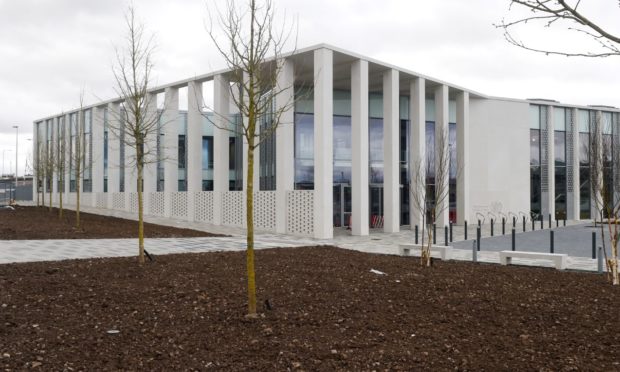Judicial officials have pledged to continue working to minimise delays to proceedings at the Inverness Justice Centre.
The Inverness Justice Centre opened for business in March, making the move from Inverness Castle just as Covid-19 was taking hold.
Since then, the £23 million complex on the city’s Longman Road has made its mark by “hosting” the first virtual summary trial in Scotland.
A total of 65 custodies have so far been heard in Inverness over video link since March.
Video conferencing has been widely adopted across Scottish Courts during the pandemic to help reduce the backlog of cases mounted following the coronavirus shutdown.
Judicial officials have now pledged to reduce delays to proceedings.
Their pledge comes just days after a sheriff and a clerk at the Inverness Justice Centre were sent home to self-isolate after another member of court staff tested positive for Covid-19.
Chief executive Eric McQueen said: “The pace of change to respond to Covid has required commitment and collaboration from a range of justice partners, many involved in the Inverness Centre, which has helped facilitate the crisis response.
“We will continue to work together to reduce case backlogs and support the accused, victims and witnesses who have been impacted by Covid case delays.”
Figures released by the Scottish Courts and Tribunals Service last month showed 600 trials, due to be heard in Inverness, were placed on hold amid the pandemic as more than 22,437 trials in courts across the nation were still waiting to be called.
Inverness Sheriff Court has embraced virtual hearings including custody courts and civil business and was at the forefront of piloting virtual summary courts.
Inverness Justice Centre also held the first virtual Fatal Accident Inquiry to minimise further delay for participants.
Meanwhile, some business, for example child welfare hearings have been dealt with in a courtroom, with several parties present.
Scottish government ministers are now investing more than £12million to establish remote jury centres to enable proceedings delayed by Covid-19 to recommence.
Justice Secretary Humza Yousaf added: “We understand the impact trial delays have on victims, witnesses and accused and we continue to work with partners, including victims groups, the Scottish courts and prosecution services, and the legal profession, to identify the best possible way to deal with the backlog.
“This includes Scottish Government funding of up to more than £12 million to establish the ground-breaking solution of remote jury centres which will allow the High Court and Sheriff and Jury to return to pre-Covid capacity over time.”
Ground works on the two-storey complex, situated next to one of the city’s police station, began back in 2017.
The centre was constructed with aims of transforming the way justice is delivered in the Highlands by bringing several services together under one roof.
Citizens Advice Bureau, Highland Council’s criminal justice social work, NHS Highland and Police Scotland are just some of the services making use of the facility.
The move has paved the way for Inverness Castle to be restored and turned into a major tourist attraction.
Inverness councillor Emma Roddick said: “The Inverness Justice Centre was delivered on-time and under-budget and, despite opening during lockdown, it is incredible news that only a few months later it was able to host what was the first virtual trial of its kind in Scotland.
“The “new normal” means huge, unplanned changes for all kinds of professions, and it is encouraging to see the concept of a virtual court has been made a reality here in the Highlands.”
